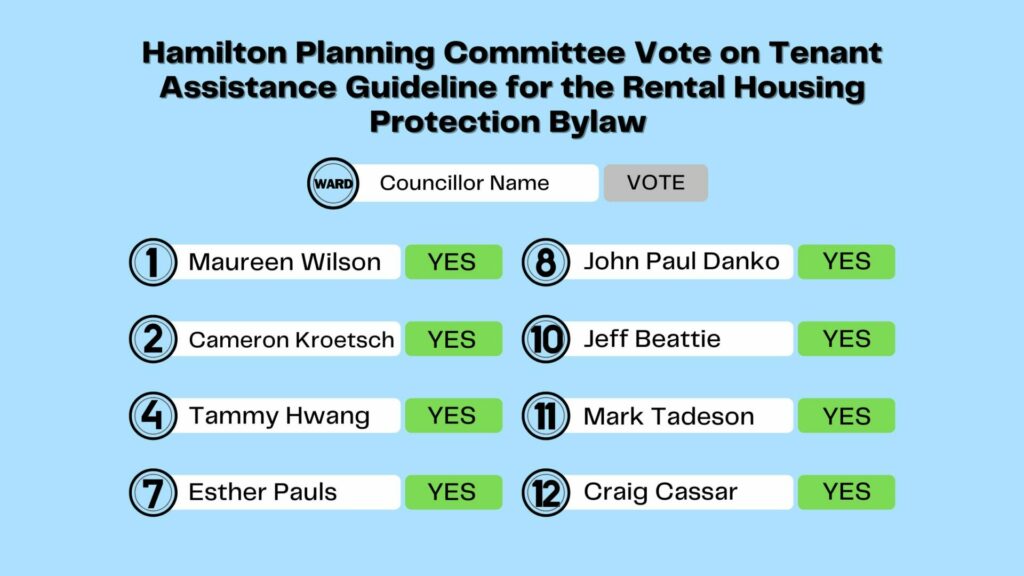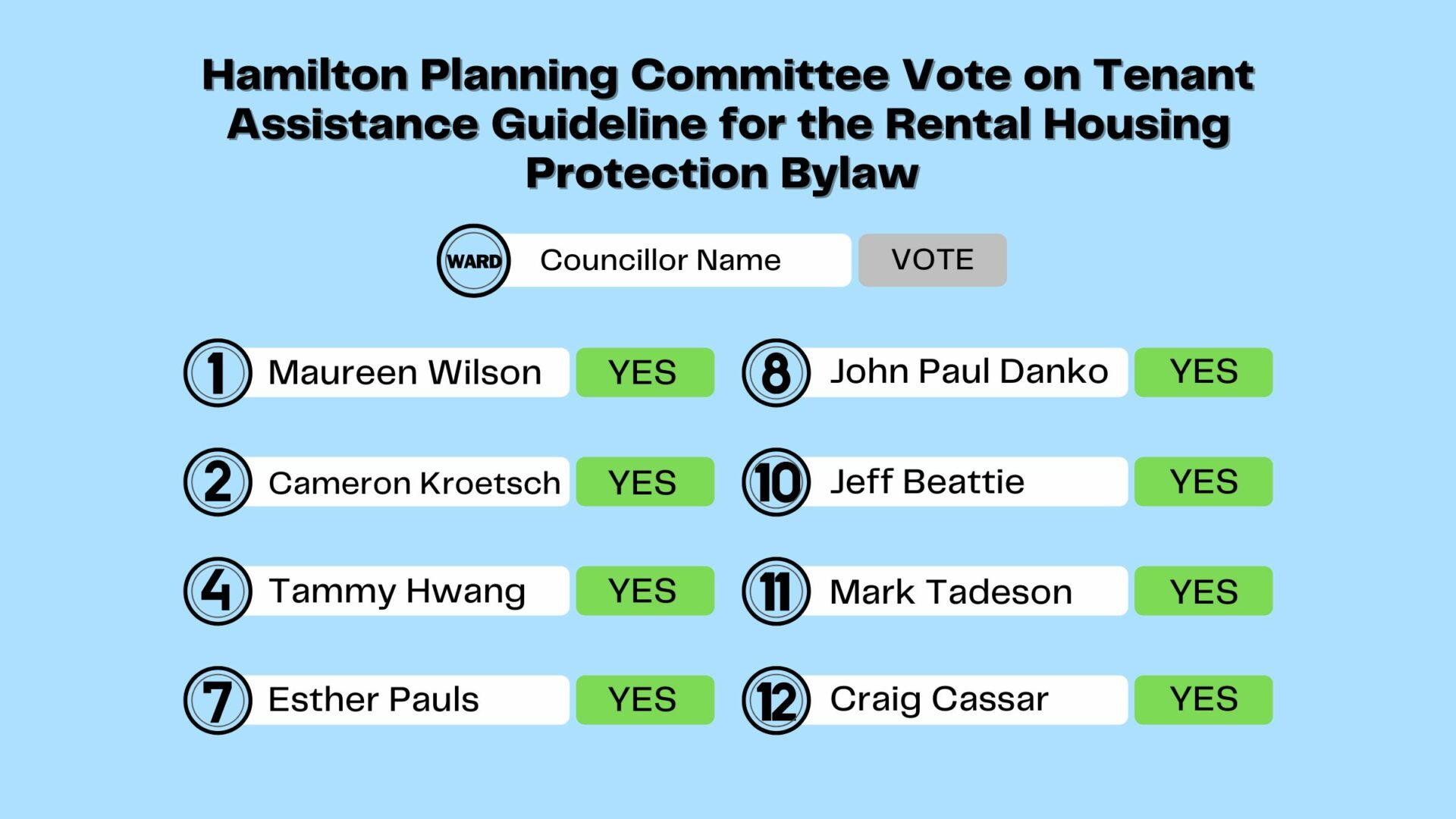Hamilton Listens to Tenants’ Concerns – Approves Improved Tenant Relocation and Assistance Guideline
Posted November 21, 2024
On Tuesday, November 19th, the City of Hamilton Planning Committee met to discuss recommended changes to the Tenant Relocation and Assistance Guideline under the new Rental Housing Protection Bylaw. ACORN Hamilton submitted a letter in full support of the proposed changes.
In a unanimous 8-0 vote, the Planning Committee approved the Tenant Relocation and Assistance Guideline with no changes to the recommendations!
Background:
The Rental Housing Protection Bylaw, set to take effect January 1st, 2025 alongside Hamilton’s renoviction bylaw, was approved at the June 18th, 2024 Planning Committee meeting and ratified by Council on June 26th. The bylaw will introduce protections against demolition and condo conversion for tenants in purpose-built rentals, including implementing standards for accommodating and assisting tenants through relocation when required.
ACORN members delegated in June, raising concerns about rent gap payments not accurately reflecting current rental market conditions. Hamilton City Council voted to defer approval of the Tenant Relocation and Assistance Guideline based on ACORN’s feedback. Councillors were in agreement on the issues of inadequate rental top ups and the need for consistency across tenant assistance requirements for demoviction and renoviction. The deferral gave City staff additional time to determine a more appropriate method of calculating rent gap compensation.
Recommended changes to the Tenant Relocation and Assistance Guideline:
- Changes to rent rates used to calculate rent gap payments, which would provide a greater level of compensation to tenants.
- That the same methodology is used for the Renovation License and Relocation Bylaw (renoviction bylaw) permit process.
- That these numbers be updated annually.

Other Elements of the Tenant Relocation and Assistance Guideline:
- Tenant Relocation and Assistance Plans will be required whenever rental units with existing tenants are proposed for demolition.
- Whenever tenants are required to move out of a rental unit, financial compensation will be required.
- Compensation equal to 3 months’ rent, as required by the Residential Tenancies Act.
- The landlord must arrange and pay for an insured moving company to relocate impacted tenants OR reimburse moving expenses at a flat rate of: $1,500 for bachelor or one-bedroom units and $2,500 for units with 2+ bedrooms.
- Similar compensation required for moving costs where tenants are moving back into replacement units.
- Additional special needs compensation may be required where at least one member of the household is 65+ years of age and/or has a physical or mental health challenge.
- When replacement units are required and temporary alternative accommodations at the same rent are not being provided, rent gap payments will be required for eligible tenants.
- A requirement to have a tenant relocation coordinator/leasing agent made available to assist displaced tenants with finding alternative accommodations.
- If replacement units are being constructed, a process addressing the right to return to occupy the replacement housing.
- Required replacement units must contain at least the same number of bedrooms and be a similar size as demolished units.
- Replacement units must be in a comparable location deemed acceptable by the City of Hamilton (in most cases, required on-site).
- When tenants move back into replacement units, rental rates must be maintained at the same rent prior to the demolition (plus any applicable legal rent increases).
While most of ACORN’s rental replacement and tenant assistance demands were already incorporated in the Rental Housing Protection Bylaw, we are very pleased to see the effort that has been made to improve the calculation of rent gap payments to reflect the challenge tenants will face when finding a new apartment! ACORN thanks City Staff and Councillors for listening to tenant voices and working to make a strong bylaw.


